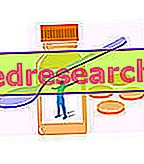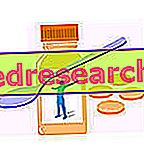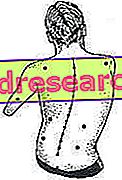
What is the Depression
Depression is a psychopathological state marked by a decline in mood, killing and psycho-physical prostration. There are different forms of depression, partly differentiable on the different causes or contributing causes (based on organic lesions, general concomitant diseases, biological substrates such as neuromodulatory deficiencies, genetic and psychodynamic factors).
The depression is overt when 5 or more of the typical diagnostic symptoms are present simultaneously, for at least 2 weeks of observation:
- depressed mood for most of the day, almost every day, as reported by the subject or observed by others;
- marked decrease in interest or pleasure for all, or almost all, activities;
- significant weight loss, in the absence of a diet, or significant weight gain, or decreased or increased appetite almost every day;
- insomnia or hypersomnia almost every day;
- psychomotor agitation or slowing down;
- fatigue or lack of energy;
- feelings of self-depreciation, or excessive or inappropriate feelings of guilt, almost every day;
- decreased ability to think or concentrate and difficulty making decisions;
- recurrent thoughts of death, recurrent suicidal ideation without elaboration of specific plans, or an attempted suicide or the elaboration of a specific plan to commit suicide.
In depression, along with sadness, contempt, lack of interest and lack of initiative, feelings of insecurity, a sense of unworthiness, restlessness and anxiety are often present in the subject; insomnia, decreased sexual desire, headache, dizziness, and cardiovascular functional disorders are always present.

The difficulty in diagnosing depressive syndromes lies in the objective difficulty in recognizing symptoms as specific.
Traditional pharmacological therapy is undoubtedly the most successful in the most severe forms of depression; consequently, it can be seen that phytotherapy can find undeniable difficulties in entering the therapeutic field of psychoses.
Drugs and herbal medicine
Alongside the severe forms of depression, where the causes are very complicated and difficult to treat, there are also mild or minor forms, often attributable to the patient's inner conflicts, such as difficulties in adapting or existential vicissitudes. Phytotherapy is useful in these cases, since the malaise never reaches levels of total alienation (as in cases of severe depression) and the symptoms are easily recognizable and treatable (pessimism, irritability and discontent prevail in these people).
Depression must be treated by doctors and psychiatrists, but minor forms can be successfully treated by using herbal remedies which, through clinical and diagnostic tests, have been shown to have positive feedback on treated individuals.
The treatment of depressive syndrome is mainly based on psychotherapy and drug therapy, which aims to increase the amount of neurotransmitters that can be used by brain receptors (MAOI; SSRI; SNRI; NASSA ...).
In mild forms of depression (mild to moderate depression) only some plants have actually been shown to be able to act on the symptoms, thus bringing a benefit for the patient: first of all the Hypericum, but still the Griffonia, the Rodiola and the adaptogens Panax Ginseng and Eleutherococcus (used as a support). These phytotherapics, with mechanisms of action attributable to the various phytochemical components or more often to the entire phytocomplex, can be prescribed and recommended at therapeutic dosages for long cycles, keeping in mind the drug interactions and contraindications.
Hypericum - St. John's Wort
Name: Hypericum perforatum
Family: Hypericaceae
St. John's wort is a real drug in the treatment of mild depression, which in Italy is used for this purpose only under medical prescription.
The parts of interest, used for phytotherapeutic preparations, are the leaves and flowering tops (application in the preparation of herbal teas: use 1-2 teaspoons of top for 150ml of boiling water; leave to infuse for 5-10 minutes, filter and drink for a period of several weeks in the morning and evening).
Active principles
Among the active ingredients of hypericum we can remember:
- naphthodiandrons (hypericin and pseudohypericin);
- flavonoids (hyperoside, quercitrin, isoquercitrina, rutin);
- floroglucine (hyperforin and adiperforin);
- xanthones;
- tannins;
- essential oil.
Effectiveness

Hypericum extracts are superior to placebo in the treatment of mild-to-moderate depression, and for this indication they are as effective as conventional antidepressants.
The hypericum phytopreparation appears to inhibit the re-uptake of cerebral amines (serotonin and noradrenaline); Methanol extracts of hypericin and hyperforin inhibited the synaptosomal uptake of serotonin, noradrenaline, dopamine and GABA in vitro.
Indications
St. John's wort, therapeutic indications:
- symptomatic treatment of mild to moderate depression;
- external treatment of wounds, burns and skin ulcerations (hypericum oleolith).
The recommended daily doses (900mg, or in any case from 600 to 1200mg) for standardized extracts in hypericin are equivalent to 0.2-2.7 mg of hypericin.
The effect of hypericum occurs after 2-4 weeks of treatment (such as traditional drugs).
Side effects
Dry extracts and mother tinctures are generally well tolerated, even by the elderly patient.
Minor side effects, which include skin rash, nausea, asthenia and restlessness, were observed in a percentage ranging from 2.4 to 7.4% of treated patients.
The use of hypericum is not recommended during pregnancy, puerperium and in pediatrics.
The use of hypericum should be avoided in conjunction with the use of other synthetic antidepressants (eg tricyclic antidepressants and SSRIs), in order to avoid the risk of "serotonin syndrome".
Hypericum is a powerful inducer of the hepatic microsomal system (induces the activity of cytochrome P450 isoenzymes), so it is not recommended to use hypericum when you are taking other drugs that could reduce its effectiveness (eg cyclosporine, theophylline, benzodiazepines, farfari, indinavir, ritonavir, saquinavir, oral contraceptives, anticonvulsants such as carbamazepine and phenobarbital, digoxin, anti-migraine, ...).
With regard to photosensitivity induced by the presence of hypericin, 2 cases have been documented in humans: the first in a subject who has used hypericum for 3 years, while the second in a 35-year-old woman who after 4 weeks of treatment developed an unspecified neuropathy; in both cases the symptoms receded following the suspension of treatment. Other studies indicate that photosensitivity occurs at higher dosages than the recommended dose.
Among the serious side effects, resulting from the use of hypericum, some cases of "mania" (eg a 20-year-old patient with manic-depressive psychosis - who had replaced the treatment prescribed for bipolar disorder with the hypericum, at the commonly recommended dose of 90mg / day - showed an episode characterized by extreme agitation, irritability, anxiety and insomnia).
Watch the video
X Watch the video on youtube



